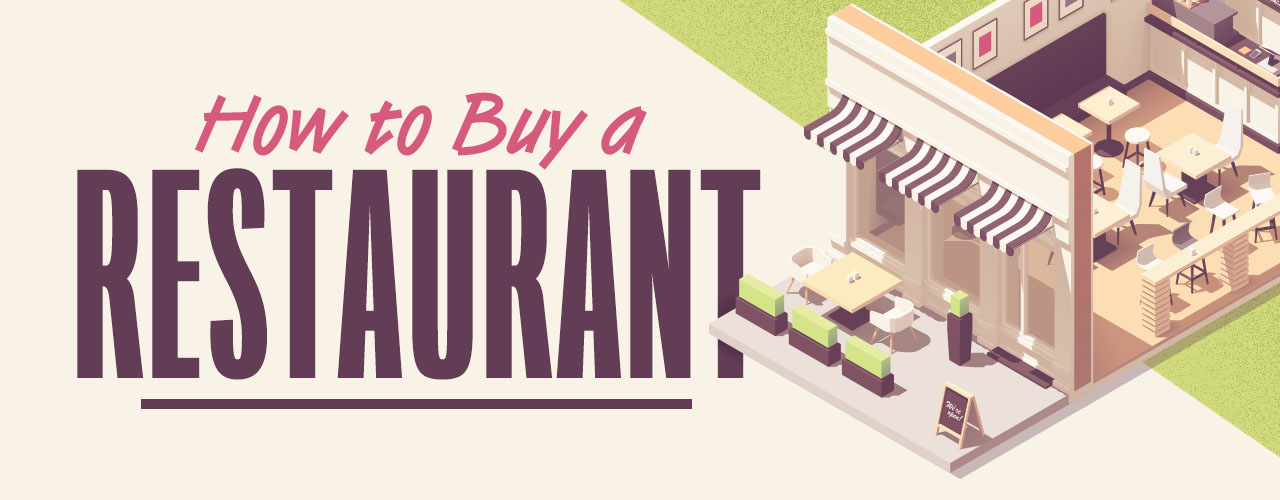
When entering the restaurant business, aspiring entrepreneurs have multiple avenues to explore. You can start a restaurant from the ground up and navigate the complexities of establishing a new business, or you can purchase an existing restaurant. The latter can be an attractive option for those who prefer a streamlined approach, and it is especially beneficial for individuals with limited foodservice experience but a strong desire to enter the field. The process requires careful consideration, and we'll outline each step to walk you through the process.
How Much Does It Cost to Buy a Restaurant?
In general, it costs between $200,000 to $500,000 to purchase a restaurant. This figure can vary significantly depending on various factors, such as location, size, concept, and condition of the establishment. It's important to note that the growth of the foodservice industry in recent years has made investing in a restaurant a potentially lucrative venture, and buying one can be significantly less expensive than buying other businesses.
Steps to Buy a Restaurant
The restaurant buying process can change depending on your location, concept, and preferences, but there are several key steps you'll need to plan for. We'll outline each step below and offer tips about how to approach them best.
1. Hire Advisors
Even if you have previous experience owning a restaurant, surrounding yourself with knowledgeable resources can ensure a smooth and successful purchase. Your team of advisors will guide you through the complexities of the transaction, providing valuable input along the way. Consult with the following professionals as you start your search:
- Restaurant broker: A restaurant broker is a specialist who typically works on commission and is trained to facilitate restaurant transactions. From providing insight into financials to understanding contracts and legal requirements, they provide invaluable expertise.
- Accountants: Restaurant accountants ensure your finances are in order. They meticulously examine all your financial records, offer guidance, and suggest strategies to streamline the purchasing process.
- Lawyer: Lawyers specializing in the restaurant industry are a valuable asset. They review and draft contracts, agreements, and other legal documentation related to the transaction, providing you with peace of mind and legal protection.
2. Prepare Financials

Review and optimize your financials early to strengthen your purchasing power and pave the way for a more informed experience. If you don't know where you stand, take the actions listed below:
- Check your credit score: A strong credit score increases your chances of qualifying for loans and getting approval for a restaurant purchase.
- Assess liquid cash flow: The amount of money you have access to is vital for covering initial costs and unforeseen expenses that may arise during the buying process. Depending on how much you have, you may need to apply for additional financing.
- Get pre-qualified for loans: Pre-qualification provides financial information to lenders to determine the amount you may be eligible to borrow money. Being pre-qualified can streamline the loan application process and give you a better understanding of your borrowing capacity.
- Explore loan options: Look into potential loan options if your restaurant purchase will require additional capital. From traditional bank loans to Small Business Administration (SBA) loans and alternative financing solutions, there are several avenues to explore.
3. Begin Inquiry
An inquiry is where prospective buyers conduct market research and reach out to potential sellers. Your restaurant broker will be a valuable resource during inquiries, connecting you with sellers and guiding you through the process. In addition to working with a broker, you can identify potential sellers through your business connections, online sources, and private searches.
Identify your target market and focus on finding a restaurant within that area. Before proceeding with any potential purchase, ensure that you and the seller are on the same page. Clear communication and alignment between buyer and seller will facilitate an easy transaction.
4. Verify Seller Information

Have your team examine the seller's financials and background. Often referred to as a due diligence checklist, this step is essential for ensuring the transaction is sound and in your best interest. Confirm the following details as you look into the seller:
- Financial arrangement: Verify the seller's financial arrangement, including revenue streams and expenses.
- Debt: Confirm the seller or their restaurant is not in the red. Review financial statements, balance sheets, and profit and loss statements to assess the viability of the business.
- Reasons for selling: Understanding the motivation behind the sale can help you assess any potential risks or challenges associated with the transaction.
- Legal standing: Examine records about the restaurant's legal standings, including licenses, permits, and compliance with regulations. Identifying any legal issues early on can help you avoid potential liabilities in the future.
- Employee standing: Obtain information about the restaurant's employees, including their roles, responsibilities, and compensation. Identify any potential staffing needs or challenges that may arise during the transition.
- Inventory and suppliers: Evaluate the restaurant's inventory and relationship with suppliers. Understanding the inventory levels and supplier agreements can help you assess the operational efficiency of the business.
5. Inspect the Location
Do a thorough check of the restaurant's location to assess the current condition of the property and identify potential hazards. If needed, hire a professional or service to survey the property for you. This is especially helpful for individuals who are new to the industry.
- Look for code violations: By verifying compliance with local regulations and safety standards, you can mitigate the risk of encountering safety issues or fines. Check for proper ventilation, fire safety measures, and ADA compliance.
- Search for hidden damage: Examine the structural integrity of the building, plumbing, electrical systems, and other components to prevent surprises post-purchase.
- Identify areas for improvement: Identifying areas that require improvement or modernization can help you estimate the costs. This may include upgrades to the kitchen equipment, dining area layout, or the overall aesthetics of the establishment.
6. Negotiate a Contract

The negotiation process is crucial in ensuring both parties reach a fair and reasonable agreement. It's important to remember that if you can't get the deal you want, it's okay to walk away from negotiations and pursue other options. Negotiating a contract is a delicate balance of give and take, and it's essential to prioritize your interests while being open to compromise.
During the negotiation phase, account for transfer fees, security deposits, and other costs that may come up. These additional expenses can impact the overall financial implications of the transaction. Once both parties reach a deal, your legal teams can draft the official paperwork, formalizing the terms and conditions of the sale and verifying that both sides are clear on their rights and responsibilities.
7. Create a Transition Plan
With a purchase finalized, the next crucial step is to establish a solid transition plan. This plan serves as a roadmap to guide you through finalizing the sale and moving into your role as the new owner. To ensure an easy transition, consider the following questions:
- Will you inherit the entire staff?
- Will you retain the current management team, or do you plan to bring in your own?
- When will you officially take over the operations of the restaurant?
- Do you anticipate temporarily closing the restaurant during the transition period for renovations or restructuring?
- Will you inherit all existing branding and marketing materials associated with the restaurant, or do you plan to rebrand and develop new marketing strategies?
- Are all the licenses and permits required to operate the business transferred to you along with the purchase?
Back to Top
While buying a restaurant may be easier than starting from scratch, there are still many factors you must account for. Be sure to surround yourself with a knowledgeable and trustworthy support team and approach every step of the process with care. By following the tips above, you can set your new business up for success.





